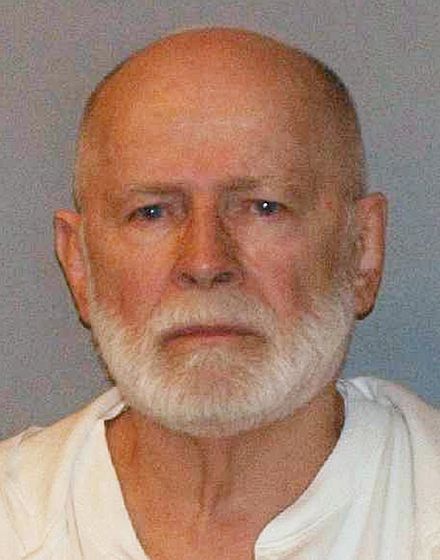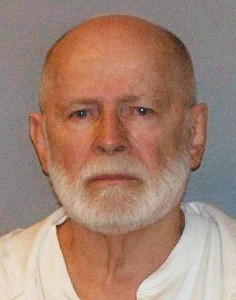Interview: Don Piper, who Spent “90 Minutes in Heaven”
Posted on January 26, 2016 at 3:52 pm
The book 90 Minutes in Heaven: A True Story of Death and Life is the story of Don Piper, who was pronounced dead after a truck slammed into his car, and his long and painful recovery, with 34 surgeries. In those 90 minutes, Piper says he experienced heaven. Now a movie starring Hayden Christiansen and Kate Bosworth as Piper and his wife Eva, written and directed by Bosworth’s husband Michael Polish, is available on DVD/Blu-Ray.
I spoke to Don Piper about his experience and about the film.
How does it feel to see your life up on a big screen?
Surreal, surreal. You know you’re watching people be you and say your words and live the experiences that you did and part of the most stunning thing about it is that you’re watching the complete story because when you are living it a lot of people are doing a lot of things that you don’t ever see and conversely the same thing with them. I did not get to see my wife making all kinds of decisions and she wasn’t there when the accident happened. So I’m now seeing what she was doing and she’s now watching the accident. Our children were fairly well screened from all of this because it was such an horrific thing that we just didn’t want to expose them to it, but now they see all of that, too. So now we watch it all together and it has a riveting effect on the five of us. But it’s not something that we would just sit down and watch on a regular basis and probably never will.
Is it especially meaningful to you that it’s the story of a husband and wife and there was a husband and wife behind the film as well? Did that add to the authenticity of the movie?
Interesting observation. Yes, I think so. Kate was really captivated by the story because it was a fairly typical lady who was just living her life and then suddenly her life was completely rearranged and torn apart. Since they are married and have been for a while, and we’ve been married for 42 years now, I think that dynamic really played a role in her wanting to have this part. Michael has been attached to the project for 6 to 7 years so he was always planning to do the movie but subsequently they got married four years ago. Incidentally, I was supposed to marry them but I wasn’t able to do it. I did not get to perform their marriage but obviously we got to be very close friends with them and I think that formed our lifelong relationship. Eva and Kate talk all the time.
Do you think that everyone gets their own individual experience of heaven or do you think that there is a sort of a separate reality that everyone encounters?
If you read the different accounts you will see different emphasis because God created us as individuals. He wanted somebody just like me, he wanted someone like you. And so we would obviously filter that through our own perspective, our own personality. So that’s why for instance Todd Burpo who is featured in the book Heaven is for Real would pay would more attention to the angels or pay more attention to other aspects and I would be more captivated by the music because I’m a music person. I love music and I probably would have been leaning in to that a little bit more. So yes, you are going to probably pay more attention to certain aspects of it because that’s something that you are very interested in.
What about different religious beliefs about heaven?
I have to come from a Christian perspective because that’s my perspective. I didn’t really grow up in a particularly spiritual or religious home but made that decision when I was about 15. So that is the horse I rode in on and I lean in that direction. God in his infinite wisdom can make that decision himself based on whoever he wants to take there. I happen to believe that it is based on a relationship with Jesus Christ the Son of God, so that is my perspective. I totally respect all the other faiths and I celebrate them and the wonderful and positive things that they do. When I’m asked about those types of things I usually say, “This is my perspective,” and I try to approach it from that perspective but respecting others’ own traditions. You know the monotheistic religions, Judaism, Islam and Christianity have a focus on heaven as a different place, another place and that place is created by God, where God lives and that we will wind up someday if we become eligible for it but that’s where we differ, on how to get there.
Would you say that your experience was more related to what you saw, what you heard or what you felt?
It’s really difficult to distinguish between those because heaven is, as I have often said, it’s a buffet for the senses, it’s essentially an explosion, it’s all those things multiplied by whatever exponent you choose. I mean the sight is something we would be blinded by with earthly eyes but we won’t have earthly eyes there, the music and the sounds in heaven are so overwhelming that I don’t think we could probably take it in with this body that we occupy here on earth. So it is stunning, it is the most real thing that has ever happened to me and it is all those things. I was embraced by the people who greeted me but one thing I did not do, I didn’t have anything to eat, so I don’t know what that’s like. I believe we will eat in heaven but we do not eat in heaven for sustenance, we eat in heaven for fellowship because God wants all his children to dine together in a fellowship experience. So it is similar in some ways to the things that we experience and enjoy here but it is so far beyond anything that we can experience here. It’s very difficult for earthly words to describe heavenly the heavenly place.

Actually it ran counter to that; it sustained me in a sense because I knew what happened next. There wasn’t really any doubt in my mind from that moment forward. But I have seen the heaven and had it taken away from me, so lying there in that bed for 13 months and enduring 34 operations only caused me to wonder why I saw it. I was brought back to a long dark night followed by two years of therapy and rehabilitation which were every bit as difficult and painful as the surgeries. So it really caused me to try to examine what in the world God was trying to teach me through this experience, showing me heaven which I didn’t particularly believe you could go and see and come back and talk about it which I did and then coming back to a nightmare of recovery. It caused me to understand why I’m still here. And I think that’s to help everyone else get to heaven by explaining to them how to get there but also to let them know they can have a better trip on the way even if they have had a horrible experience or difficult or painful events in their lives, whether it is a divorce or a bankruptcy or tornado or loss of a loved one or murder any of those things. I deal every day with people who are going through those things. So somehow people relate what happened to me, which was quite awful, to what’s happening to them and they want to talk to somebody who got through it, they want to talk to somebody who understands what pain and struggle are about and I certainly do understand that. And I try to help them get through it.
Would you say that the movie is in a way a part of that ministry because it can reach an audience that you might not be able to reach by sermons or by lectures?
I wouldn’t have made it if I didn’t believe that it would be. We consider it a ministry tool. The death rate here on earth is 100%. We’re not getting out of this alive so if people want to know what happens next but they also want to know how do you get through life when it’s just incredibly painful and very challenging, very difficult, then this is what we have to tell him. Let’s face it, if we all live a long life we probably going to need a miracle. We wonder if God does hear and answer our prayers, and I think I’m only alive because people prayed and God said yes. I’m certainly only alive because a lot of miraculous things have happened to cause me to be functioning and to cause us to even be able to have this conversation.
So yes I do believe that we wanted to make the movie, I mean let’s face it we put our lives on display, we put our pain on display, we put our challenges on display, hoping against hope that it would cause people in their everyday lives to pause for a moment and think, “OK I’m not going to stay here, when we show up on earth we find out very quickly we don’t get to stay. So that begs the question – what happens after this? Is there anything after this? So what? And also how do I get through this day? This day in which somebody hit me with a truck or someone gets sick?” Watch the first 15 minutes of the newscast any night and it’s just mostly mayhem and tragedy and suffering and pain and that’s the way it is here on earth and so how do we endure? How do we overcome? How do we get better and not bitter? That’s what the movie was supposed to be about, that’s what the books were about, that’s what I’m trying to do.
What do you say to people who come to you and ask why when they have done their best to be good people terrible things happen to them?
It’s the world in which we live. Let’s face it; we got off on the wrong foot at the very beginning of humanity. I mean in one of the first stories in the Bible the first two children that were born, one killed the other. So we have not done well. We’ve been rebellious, we know how to do right and we do not do it. Almost any culture or spiritual system would agree with that. We fail and we are disobedient, we mistreat each other. So that is the price of this world and that’s one reason why diseases prevail, accidents happen and certain things here on earth that seem to be out of our control more or less, or if we can control them we don’t so that begs the question, there’s got to be a better place to live, and thankfully there is.
God has not abandoned us. He just provided us a better way and I think that way is Christ, of course, that’s why we made the movie, that’s why I wrote the book, because we want people to understand you don’t have to live like this. I have been knocked down but I have not been knocked out, I’m certainly beaten up — I have the scars to show for it all over me — but I’m not beaten. You know when I get to speak sometimes I look down on the first couple of rows there would be people in wheelchairs, there are people even wearing the devices that they put on me, to save my leg and they come a long way because they want to talk to somebody who gets it, they want to talk to somebody who understands what they are going through. Everybody’s been nice to them and encouraging to them but they do want to hold hands with somebody who has lived through it, emerged on the other side and understands what they’re going through.
I think we can all do that, I talked to a man the other day who lost his wife of 40 years and he was really obviously devastated and was kind of angry at God for taking his wife, that’s what he said. And I said, “Well I’m so sorry for the temporary separation from your wife.” She was a believer and so was he, and so I said, “You know what, she may have been your wife but think about where she came from.” “She was a gift of God,” he told me. I said, “Of course she was and God is taking good care of her now, so instead of shaking your fist at Him and saying ‘Why did he take my wife?’ who He’s actually taking good care of in heaven, why don’t you put your arm around other people who have lost their spouse and say, ‘Let me help you get through this, I understand how you feel.'” So his face lit up. The tears dried up and he said, “Well, I can do that, I can help other people get through this because I did it.” I said, “Of course you did and God can use you to do that.” I think that is the thing that matters to me the most. I call that a new normal. I’m not the person I was before. A long time ago I decided to take the disappointments and there’s has been a bunch because I can’t do a lot of things I used to do before the truck hit me, I’ve decided to take the disappointments and look for opportunities to minister to people who are hurting, because I know what hurting is and I’m still here.”



